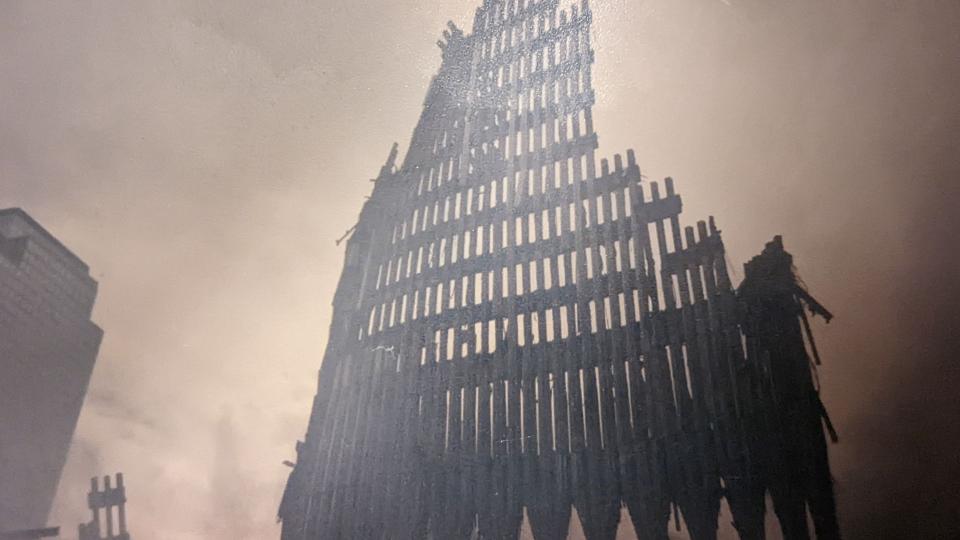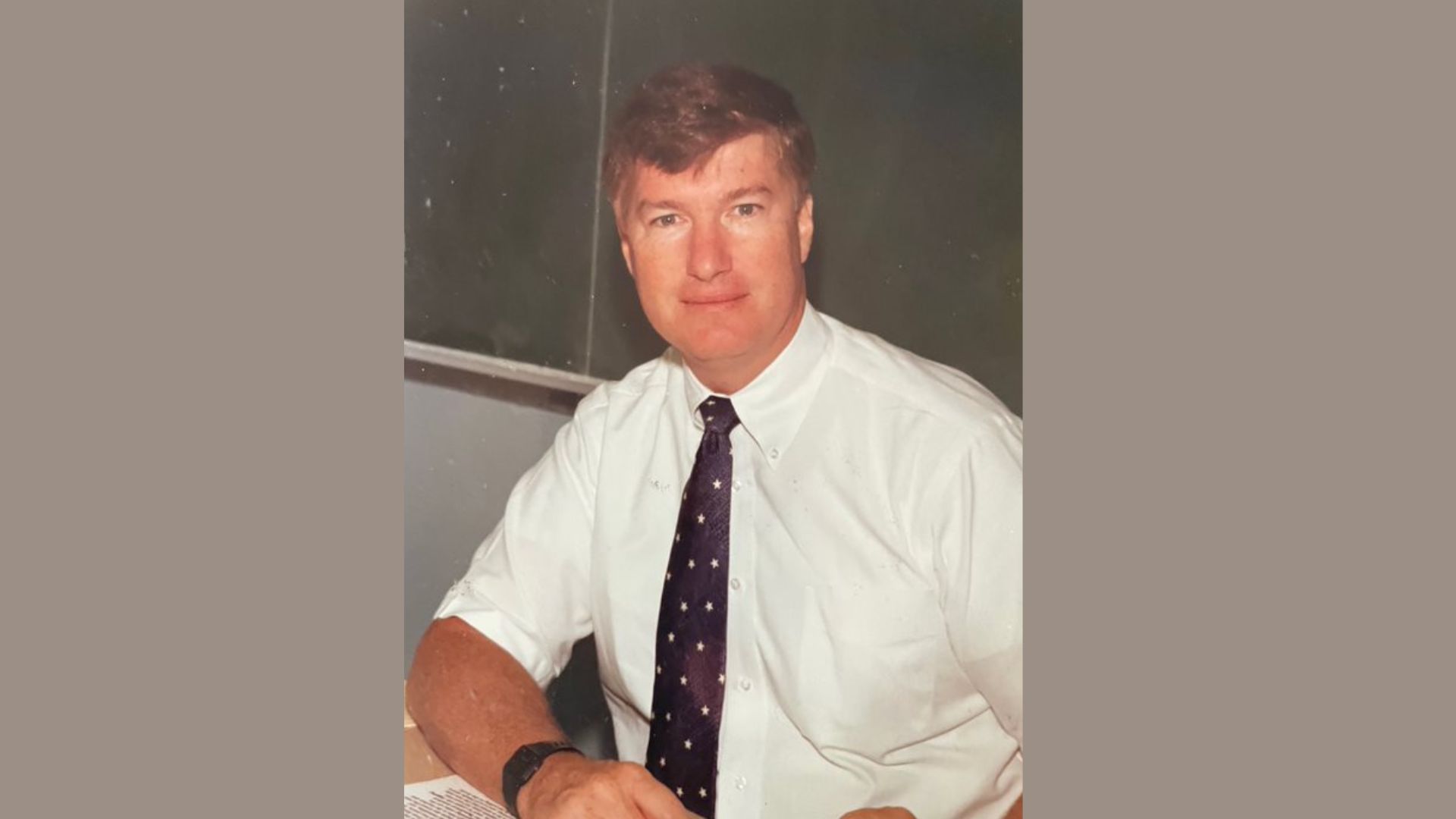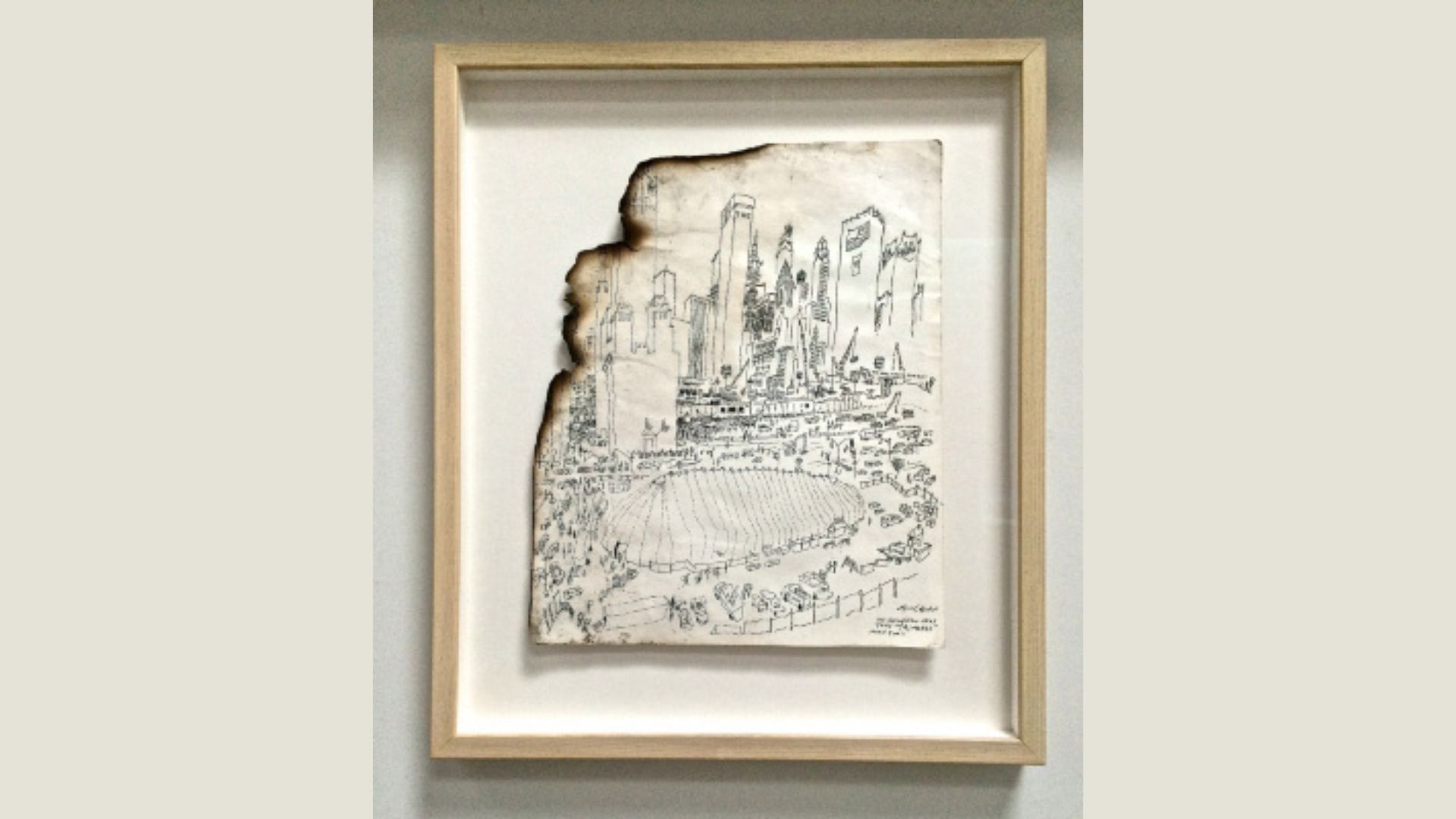Make a donation to the museum
Rescue & Recovery: In Their Own Voices With Larry Provost
Rescue & Recovery: In Their Own Voices With Larry Provost
- July 17, 2023

This month's installment of "In Their Own Voices" features Army Reservist Larry Provost, honoring the anniversary of the U.S. Army's 1775 founding last month. Larry Provost responded to lower Manhattan on 9/11 and volunteered for a week, helping to search for survivors. A year later, on September 11, 2002, Provost joined his unit on a six-month mission to Afghanistan. Here, Provost shares his story about 9/11, volunteering in the days that followed, and the bond he shares with other rescue, recovery, and relief workers.
Where were you on 9/11?
I was in my hometown in upstate New York. I was supposed to be in law school to get a joint degree in law and government, but my housing fell through at the last minute, and I had to defer. I remember saying to someone, “Why does God want me to be in New York in the fall of 2001?” I decided I’d complete a military course that would end in early September and then begin a graduate studies program at Binghamton University starting on September 12.
On 9/11, I watched on TV as the second plane flew into the South Tower. When I saw the building collapse, I called my military unit and asked them for permission to go to the site to assist. They granted my request and advised me to be careful and not to get hurt.
I sped down to New York City from upstate, making it in four hours. The New York City Police Department directed my vehicle to where the military volunteers were gathering at 340 West Street. I was at the site until Sunday, September 16.
What role did you play in the rescue, recovery, and relief efforts?
I joined a group of military volunteers led by Army Colonel Mike Finn, Navy Commander G. Mark Hardy, and later Army Lieutenant Colonel Gilbert Mestler. The group worked alongside firefighters, police officers, ironworkers, and many others. We worked together until September 13, when LTC Mestler disbanded the volunteer military unit. I continued digging on my own until Sunday, the 16th.
Throughout my time there, I would check in with my military unit located in Upstate New York every day. There were working phones in the World Financial Center, and special ones set up on the street. I would let them know that I was still alive. I also distinctly remember the smell in the air. Everything was gray, like a nuclear explosion. The ash falling from the air almost reminded me of the snow when I had come to New York City at Christmastime. For the week I was at Ground Zero, I desperately wanted to find people who had somehow been trapped or buried alive but there were no survivors found after the first 27 hours.
Left: A photo Provost took of the rubble at Ground Zero. Right: Provost, on the left, at the site.
Can you describe the bond you feel with other recovery workers? How has this community impacted you?
My group at Ground Zero was formed by skilled individuals who wanted to be of service and not stand by after a terror attack on the United States. We were a group of volunteers looking to help in the face of tragedy. This group has an especially deep bond, and it has deepened in the years since. We frequently check in with each other, and we organize a reunion on September 11th every year in New York City. We pray for each other, and we’ve been to each other’s weddings. In fact, I officiated the wedding of one of our group several years ago.
Do you have any health issues connected to your time at Ground Zero?
Thankfully only a few. I developed some bad skin rashes and they still flare up. For a few years after 9/11, I had trouble running — it was as if I was not getting air into my lungs.
Why is it so important that new generations with no living memory of 9/11 learn the story and legacy of that day?
It’s important to share the story of September 11th with future generations for several reasons. There is evil in the world, and nothing can change that. However, there is also good in the world, and you see that with how people came together after the attacks in New York, Virginia, and Pennsylvania. While I wish that September 11 never happened, I will never forget the sense of patriotism and togetherness that we had during that time. We knew, even in the middle of digging, and through the first year anniversary, that we were part of something special.
Anything else you'd like to add?
The people of New York City handled this attack as no one else would and served as an example for the world. Though I was not a resident of New York City, I was a resident of New York State and was privileged to not only be an American citizen, but a New Yorker on September 11, 2001.
I thank my brothers and sisters in service whom I had the privilege of serving with.
Compiled by Caitlyn Best, Government and Community Affairs Coordinator
Previous Post
Someone Like You on Their Side

As the FDNY's Chief Medical Officer on 9/11, Dr. Kerry Kelly was a first responder who raced to Ground Zero to help however she could. Her school teacher husband Dan, whose ability to remain calm and steady in the face of chaos steered his Staten Island students through that horrific day and its aftermath, is a 9/11 hero in his own right.
Next Post
In Pen and Ink, Artist John Coburn Captures Hope and Resilience at Ground Zero

Pen and ink artist John Coburn, whose work is featured in the new Towers Rising exhibition, found inspiration in the devastation he witnessed after 9/11, fueling him to transform the pain and chaos into something meaningful.

